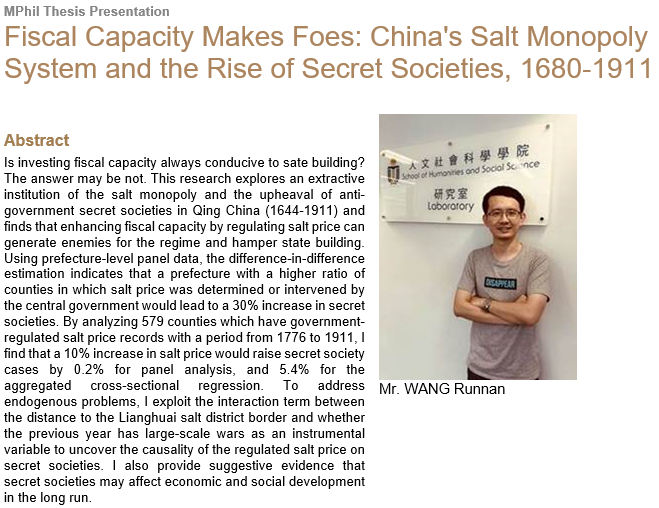Abstract
Is investing fiscal capacity always conducive to sate building? The answer may be not. This research explores an extractive institution of the salt monopoly and the upheaval of anti-government secret societies in Qing China (1644-1911) and finds that enhancing fiscal capacity by regulating salt price can generate enemies for the regime and hamper state building. Using prefecture-level panel data, the difference-in-difference estimation indicates that a prefecture with a higher ratio of counties in which salt price was determined or intervened by the central government would lead to a 30% increase in secret societies. By analyzing 579 counties which have government-regulated salt price records with a period from 1776 to 1911, I find that a 10% increase in salt price would raise secret society cases by 0.2% for panel analysis, and 5.4% for the aggregated cross-sectional regression. To address endogenous problems, I exploit the interaction term between the distance to the Lianghuai salt district border and whether the previous year has large-scale wars as an instrumental variable to uncover the causality of the regulated salt price on secret societies. I also provide suggestive evidence that secret societies may affect economic and social development in the long run.

